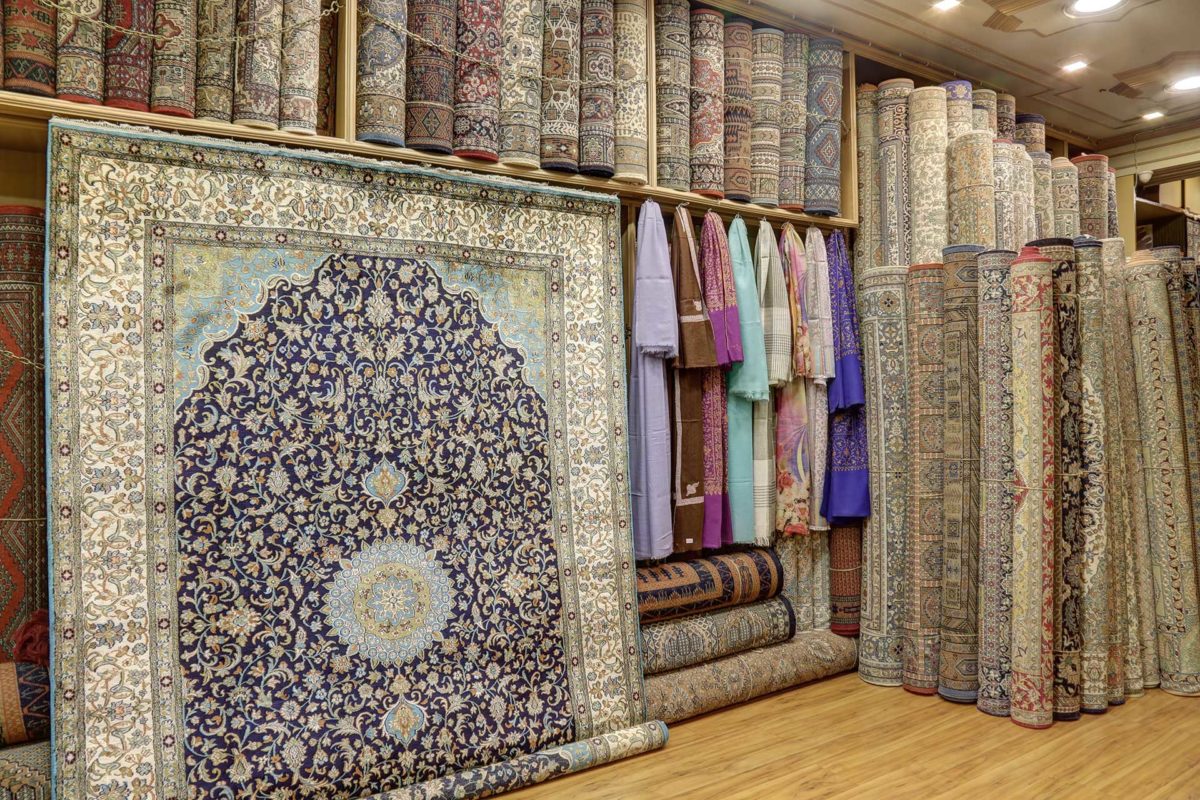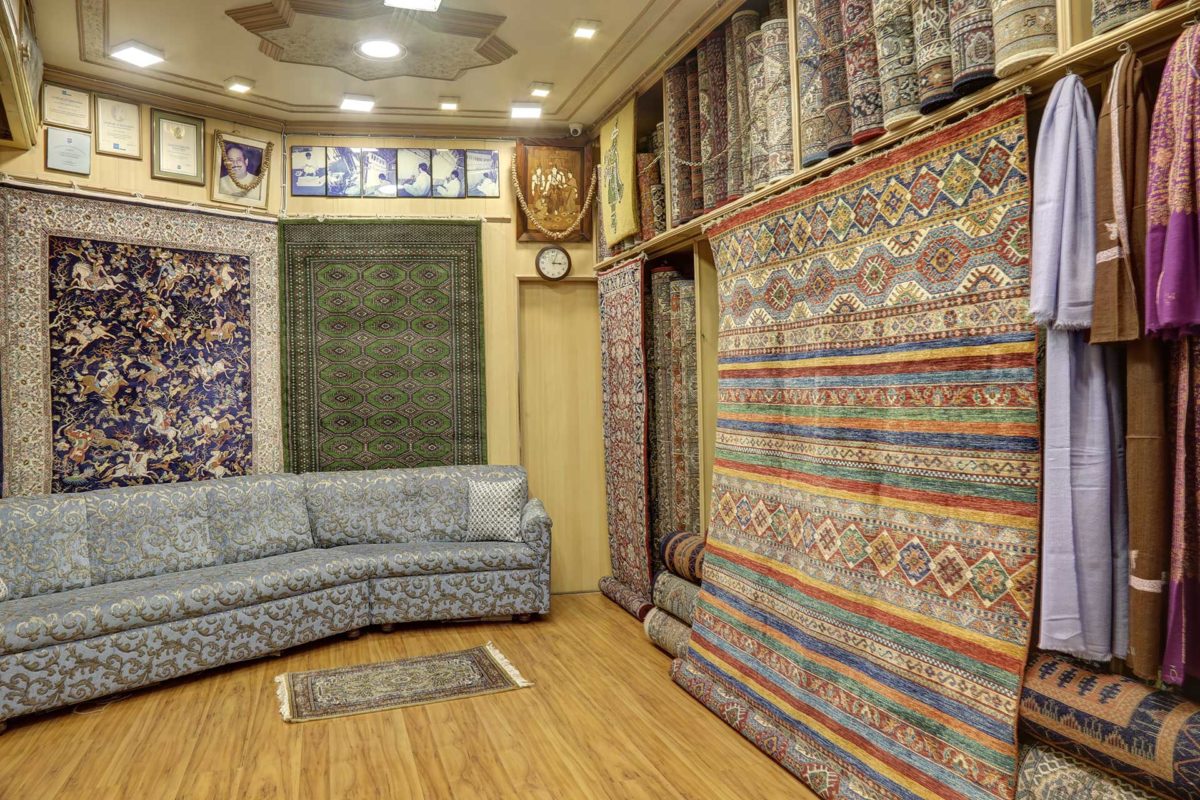Carpets have been an integral part of home decor for centuries, offering both comfort and aesthetic appeal.
The quality, durability, and craftsmanship of a carpet can significantly impact its value, and understanding the differences between hand-knotted and machine-made carpets is crucial for making an informed purchase.
This article delves into the intricacies of both carpet-making techniques, highlighting their distinctive characteristics, benefits, and drawbacks.
We have a ready-in-stock collection of over 2000 handmade hand-knotted rugs at our World Trade Centre showroom in Mumbai; for bedrooms, living rooms, passageways, and wall hangings.
Our collection of rugs, designed for bespoke homes and luxury hotels, features predominantly floral and geometric patterns. Each piece is meticulously crafted from the highest quality materials, including pure natural silk and 100% pure Merino wool, ensuring an unmatched level of luxury and craftsmanship.
Handmade hand-knotted rugs bring a touch of luxury and warmth to your small office home office, creating an inviting and productive environment.
Luxury Handmade Rugs: Ready in-Stock »


Introduction »
Carpets are more than just floor coverings; they are works of art that reflect cultural traditions, artisan skills, and technological advancements.
The method used to create a carpet plays a vital role in its texture, appearance, longevity, and price. Among the various carpet-making techniques, hand-knotting and machine-knotting stand out for their widespread popularity.
This article explores the differences between these two methods to help you choose the perfect carpet for your space.
The Art of Hand-Knotting »
Hand-knotting is an ancient technique that has been passed down through generations. It involves tying individual knots to a warp (vertical threads) on a loom. This labor-intensive process can take anywhere from a few months to several years, depending on the complexity and size of the design.
Characteristics and Benefits »
- Uniqueness and Quality: Each hand-knotted carpet is a unique masterpiece, with intricate designs that cannot be precisely replicated. The high knot count per square inch (KPSI) results in detailed patterns and a durable structure.
- Longevity: Hand-knotted carpets are known for their exceptional durability. With proper care, they can last for decades, making them valuable heirlooms.
- Material: These carpets are typically made from natural fibers like wool, silk, or cotton, which contribute to their softness, resilience, and aesthetic appeal.
Drawbacks »
- Price: The extensive time and skill required to produce hand-knotted carpets make them more expensive than their Machine Made counterparts.
- Time to Produce: The slow production process may not suit those looking for a quick purchase.
The Mechanization of Knotting »
Machine Made carpets are produced on large industrial looms that automate the knotting process. This method allows for the rapid production of carpets with consistent patterns and sizes.
Characteristics and Benefits »
- Cost-Effectiveness: The automation of the knotting process significantly reduces production costs, making Machine Made carpets more affordable.
- Consistency: Machine-knotting ensures uniform patterns and sizes, ideal for those seeking consistency in design for multiple rooms or commercial spaces.
- Variety: Advances in technology have expanded the range of designs, textures, and materials available in Machine Made carpets, including synthetic fibers that offer enhanced durability and stain resistance.
Drawbacks »
- Durability: While Machine Made carpets are generally durable, they may not last as long as hand-knotted carpets, especially in high-traffic areas.
- Lack of Uniqueness: The mass production process means these carpets lack the unique, artisanal qualities of hand-knotted carpets.
Making the Right Choice »
When choosing between a hand-knotted and Machine Made carpet, consider the following factors:
- Budget: Determine how much you are willing to spend. Hand-knotted carpets are an investment, while Machine Made carpets are more budget-friendly.
- Purpose: Consider where the carpet will be placed and how much foot traffic it will receive. Hand-knotted carpets are better suited for low-traffic areas where their beauty and craftsmanship can be appreciated.
- Aesthetic Preferences: If you value uniqueness and traditional craftsmanship, a hand-knotted carpet may be more appealing. If you prefer consistency and modern designs, a Machine Made carpet might be the right choice.
The choice between hand-knotted and machine made carpets ultimately depends on individual preferences, budget, and intended use.
Hand-knotted carpets offer unparalleled craftsmanship and durability, making them a worthwhile investment for those who appreciate artisanal beauty.
Machine made carpets, on the other hand, provide affordability, consistency, and a wide range of styles to suit various decor themes.
By understanding the differences between these two types of carpets, you can make an informed decision that aligns with your tastes and requirements.


